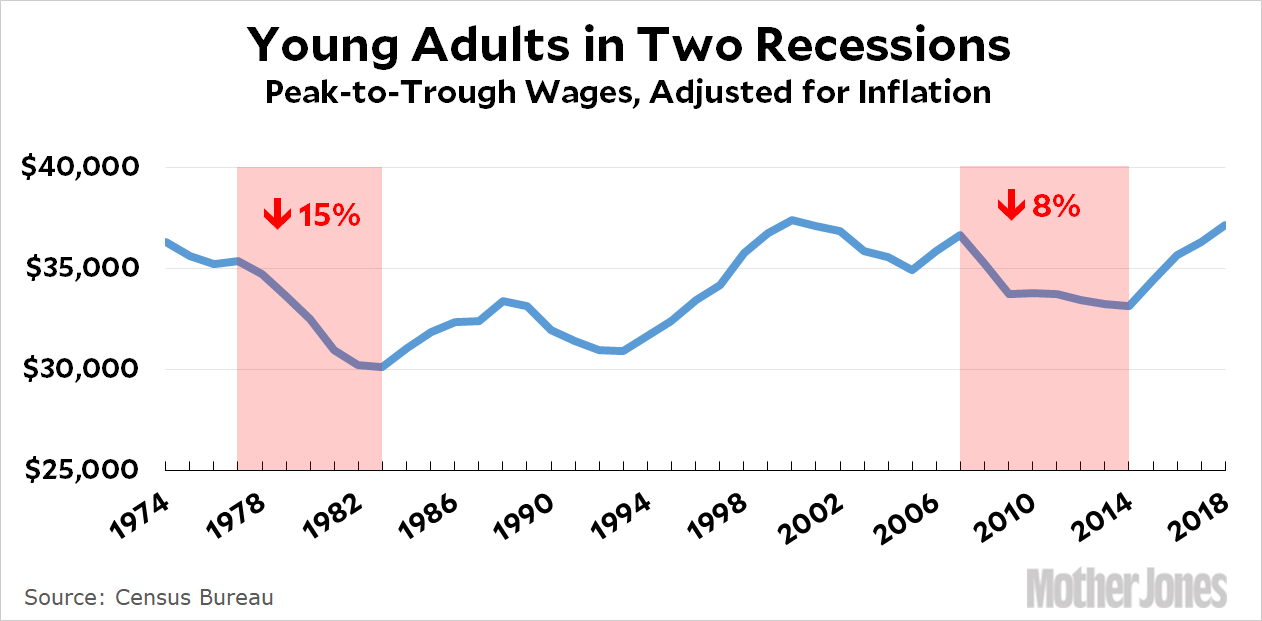It is perhaps one of the great sins of blogging that we tend to focus much more on stuff we disagree with than on stuff we think is great. Take Sean Illing’s interview with Annie Lowrey today about the plight of millennials. I think Lowrey is mostly right, but instead I’m going to focus on the one thing I think is way overstated:
There’s a huge economic body of literature that shows that graduating into a recession, like millennials did in 2008 and 2009, is unusually bad.
The part I disagree with is “millennials,” and it’s not just pedantic. First off, if we’re talking about college graduates, as we are here, that’s only 37 percent of the total cohort. Second, if we generously take the Great Recession to last from 2009 to 2013 (by which point unemployment among college grads was down to 3 percent), only about 31 percent of millennials graduated during the recession. So the share of millennials who suffered from graduating into a bad job market is about 11 percent. That’s not by any stretch “millennials.” It’s a tiny share of millennials.
I say this speaking as someone who really was unlucky enough to graduate into a severe recession in 1981. And guess what? I couldn’t find a job and ended up working at Radio Shack until the economy recovered. I did OK in the end, but that was hardly guaranteed. That said, no one would say that “boomers graduated into a recession.” That would sound ridiculous because it is ridiculous. A few boomers here and there graduated into a recession, but most of us didn’t.
Oh, and by the time I was in my late 20s and looking to buy a house, the housing market here in Southern California was booming. Millennials are hardly the only ones who have had to face that.
Now, millennials have clearly gotten screwed in general by the sluggish growth of middle-class wages, which was worse after 2000 than it was for my generation. On the other hand, the Reagan Recession was worse for wages of 25-34-year-olds than the Great Recession:

Boomers who graduated into the Reagan Recession saw their wages drop 15 percent from their peak, and it took 15 years for wages to recover. Millennials who graduated into the Great Recession saw their wages drop 8 percent from their peak and it took ten years for wages to recover.
Millennials have gotten squeezed in lots of ways. The housing market in big cities has been tough. Student debt has skyrocketed. But it’s wise not to overstate the impact of recessions. It’s a small fraction of millennials who graduated into a recession, and it affected them less than boomers who graduated into the Reagan Recession.














